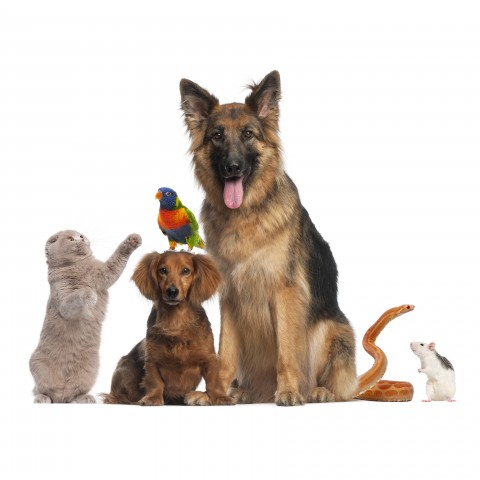
There’s a perception in the world that Afrikaans-speaking South Africans are racist and nasty. This couldn’t be further from the truth.
While overt racism isn’t dead in South Africa, it’s common only among a tiny percentage of the nation. Most South Africans ignore color, creed, and nationality.
Let AfrikaansPod101 help you to endear yourself to them quickly! Knowing how to introduce yourself in Afrikaans will help oil the wheels of conversation. It will also ease your way with local clients, and help you to more easily connect with your colleagues. Introducing yourself in Afrikaans language doesn’t have to be difficult or frightening!
Starting with “My name is,” in Afrikaans, we’ll show you all you need to know about introductions, and more information on how to introduce yourself in South Africa. This way, you can easily learn Afrikaans and introduce yourself with flying colors!
This introduction will follow greetings in Afrikaans, which another blog post introduced. It’s generally considered polite to wait for others to introduce themselves first, but if you’re feeling confident and they’re looking shy, fall in through the door with “My name is …” in Afrikaans!
Table of Contents
- Identifying Yourself with Your Name, Age, and Nationality
- Placing Yourself in Society
- AfrikaansPod101 Can Help You Master Afrikaans Easily and Effortlessly
1. Identifying Yourself with Your Name, Age, and Nationality

When it comes to how to introduce yourself in Afrikaans language, begin by talking about your name in Afrikaans. “My name is…” in Afrikaans looks similar to written English. However, it sounds somewhat different.
Afrikaans: My naam is Eun Jung.
Translation: “My name is Eun Jung.”
With “My name is,” in Afrikaans, and any other self-introduction in Afrikaans, you can lead with a specific introductory phrase: Aangename kennis. It’s slightly formal, but still commonly used among Afrikaners when meeting people for the first time. (Note: If you’re giving a speech in front of an audience to introduce yourself, you will not start with this phrase.)
Use it this way:
Afrikaans: Aangename kennis. My naam is Eun Jung.
Translation: “Pleased to meet you. My name is Eun Jung.”
Normally, you won’t offer information about your age right off the bat in conversations. Like most Westerners, the older Afrikaners get, the less they want to broadcast just how old they are. But as a foreigner, you’ll likely be forgiven most gaffes. Also, talking about your age in Afrikaans isn’t considered a big social no-no, so if you’re specifically asked for more personal details about yourself, feel free to share this bit of information.
Afrikaans: Ek is twee-en-twintig jaar oud.
Translation: “I am twenty-two years old.”
Sharing your nationality is a good idea, as your new friends or hosts will want to know where you’re from. Also, it’s a nice conversation-starter.
Afrikaans: Ek is van Suid Korea en ek bly in Seoul.
Translation: “I’m from South Korea and I live in Seoul.”
1- Situational Use
1. Informal
When you introduce yourself in Afrikaans phrases, the phrase below is suitable to use when you’re meeting new friends or colleagues in a casual, mostly social situation, such as at a party or the inevitable (and famous) South African barbeque, called a braai.
Afrikaans: Hallo. Ek is Eun Jung.
Translation: “Hello. I am Eun Jung.”
Using “I am …” in Afrikaans is the most casual, informal means of introducing yourself.
This will usually suffice, along with simultaneously offering your hand for a handshake with a warm, friendly smile. (Afrikaans men tend to shake hands every time they see each other, while women only do so when meeting someone for the first time. If you do proceed to become friends, you can expect a light hug when seeing them again, but be sure to let them initiate any embrace.)
Handshakes work in both formal and informal situations; never forget to look the person straight in the eye with a friendly smile when you do so. To Afrikaans-speaking South Africans, this indicates confidence and honesty. In more formal situations, don’t expect hugs, unless you know the person well and they initiate it.
2. Formal
Use these phrases when you greet and introduce yourself to a much older and senior colleague, boss, or dignitary. Also offer a firm handshake while looking them in the eye with a friendly smile.
Afrikaans: Goeiedag. Goed om u te ontmoet. My naam is Eun Jung.
The pronoun “u” is slightly dated and formal, but still a very polite way to address Afrikaans-speaking people. If you’re introducing yourself to a younger VIP, or if the situation warrants a more casual form of address, you can use “jou” instead of “u.”
Translation: “Good day. Pleased to meet you. My name is Eun Jung.”
2. Placing Yourself in Society

You’re still chatting with new colleagues or friends who are curious about your personal details. Don’t disappoint them—rather, blow their socks off with your excellent Afrikaans!
Afrikaans: Ek studeer pediatriese chirurgie by Yonsei University Medical School. OR Ek is ‘n loodgieter.
Translation: “I study pediatric surgery at Yonsei University Medical School.” OR “I am a plumber.”
This should be enough to oil the conversational wheels, but if not, you can go on to share more about your family.
Among Afrikaans-speaking South Africans, it’s socially acceptable to divulge your marital status upon introduction. Here’s an example of talking about your family in Afrikaans:
Afrikaans: Ek is getroud en het twee kinders. OR Ek is ongetroud en enkellopend.
Translation: “I am married and have two children.” OR “I am unmarried and single.”
1- Situational Use
It’s acceptable to share this type of information with both a formal and an informal audience, with one exception: In a formal situation, it would be best to wait for a specific request to share more personal details about yourself. This can be done in a one-on-one conversation, but more likely when you’re specifically asked to give an introductory speech (like to your new work’s Board of Directors or such).
Informally, however, you can offer this voluntarily in any casual situation. Your openness will likely be met with appreciation, and most possibly, reciprocation.
Afrikaners like people, and they like to know about people. They’re curious that way! But, it’s seldom appropriate to over-share intimate details when you first meet people, such as relating the woes of your recent bunion operation, or your daughter’s maniac ex-boyfriend who set himself on fire in her bedroom. Save those details for later, when you’ve developed a closer friendship.
Most of the time, you can relax and just be yourself. Afrikaners are generally a rather forgiving bunch, and the odd social gaffe won’t get you excommunicated. To them, most of the time, emphasis is on social interaction and making strangers feel welcome and safe.
2- Sharing More Personal Titbits

So you’re on a roll; you’re talking to a captive audience and feel they want more from you. Now you can delight them with personal details, like your hobbies, any sport you partake in, any special interests you have, etc.
Do it this way:
Afrikaans: My stokperdjie is om natuur videos te skiet. Ek is ook baie lief vir lees en tennis speel.
Translation: “My hobby is to shoot nature videos. I also love reading and playing tennis.”
Sharing little bits of information about ourselves like this makes us more relatable and “human.” It can furthermore be a good way to find friends with similar interests.
Pets are also an acceptable topic of conversation among Afrikaans-speaking people.
Afrikaans: Ek is lief vir diere en het ‘n hond en twee katte by die huis.
Translation: “I love animals and have a dog and two cats at home.”
3. AfrikaansPod101 Can Help You Master Afrikaans Easily and Effortlessly
So, reader, do you know how to introduce yourself in South Africa after reading our article? Do you feel comfortable enough to introduce yourself in Afrikaans words? If so, why not tell about yourself in Afrikaans in the comments? We’d love to hear from you and look forward to reading your self-introduction in Afrikaans!
Afrikaans is mostly a phonetic language (meaning you mostly pronounce the words as they are written), but then you have to be able to read Afrikaans. AfrikaansPod101 takes the lead with many free learning tools to help you master Afrikaans reading easily, and in fun ways.
These tools include:
- An extensive vocabulary list, regularly updated
- A new Afrikaans word to learn every day
- Quick access to the Afrikaans Core 100 Word List
- A free Afrikaans online dictionary
Learn more efficiently with the help of a personal tutor, who will first let you take an assessment test to personalize and tailor your training. You’ll also be guided to record your self-introduction in Afrikaans!
Getting a tutor is also a good option if you meet challenges in your learning, or need to fast-track correct pronunciation and enunciation. Your very own friendly, Afrikaans-speaking teacher will be only a text away on a special app, anywhere, anytime. Using a guided learning system, developed by experts in language and online education, you’ll receive personal feedback and constant support to improve in no time. You’ll also be tasked with weekly assignments in reading, writing, and speaking to really hone your Afrikaans speaking skills.
Imagine how impressed your South African friends will be when you display your excellent Afrikaans in conversation! With AfrikaansPod101, getting there will be easy and fun.















